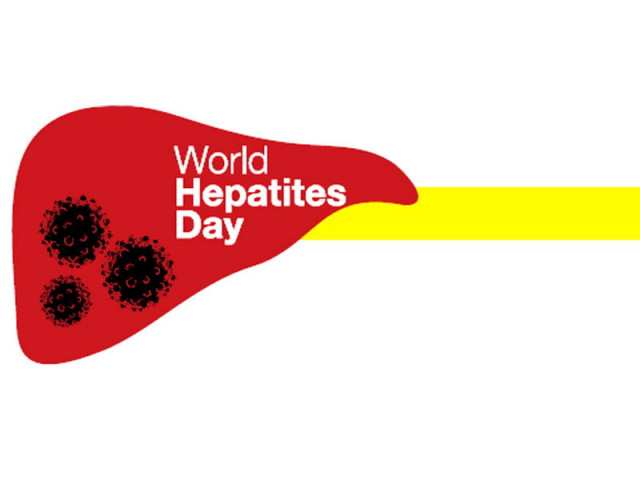Hepatitis: Look around you, one in every dozen has it
Over 16 million carry the disease, most cannot afford treatment

Look around yourself when you’re out in public next. Out of every dozen people that pass by, at least one probably has hepatitis. Every fourth one with the disease will die because of it.
Of the 180-odd million citizens of Pakistan, over 16 million carry the disease, many of whom do not even know it. Even if they did, most cannot afford to treat it.
Take Abdul Waheed for instance. The daily wage labourer from Nai Abadi, Bhara Kahu, found out he had hepatitis C two years back. “Day by day my health is worsening, but I can’t afford treatment,” the 29-year-old said. “Last year I went to a doctor who advised me to quit work for my health, but how else will I put food on the table?” he asked.
After learning of the methods of contraction, he thinks it might be due to getting a shave from a roadside barber. Without the means to pay for medical treatment, he resorted to faith healers (pirs) and quacks, which resulted in an unsurprising lack of success.
‘It’s closer than you think’
Saturday is World Hepatitis Day. It is held across the globe to create awareness about the disease, its prevention and treatment and this year’s theme is “It’s closer than you think”.
Talking to The Express Tribune, Dr Quaid Saeed, head of the World Health Organisation (WHO) Blood Safety and Hepatitis Programme, said that Pakistan is home to an estimated 16 million people with hepatitis B and C. He said that 45,000 deaths every year from cirrhosis of the liver can be directly attributed to complications from these two strains of the disease.
He cited reused syringes, unsterilised medical equipment, quackery and unsafe blood transfusions as major factors in the spread of the disease, while noting that “after the devolution of the health ministry, there is no comprehensive national strategy to control its spread”. He said, “Every province is working independently and spending billions on treatment while ignoring prevention.”
Dr Bashir Ahmed, programme manager for the National Hepatitis Control Programme (NHCP), seconded Dr Saeed, saying that after the devolution of health ministry under the 18th Amendment, the hepatitis programme at federal level is in jeopardy as international funding has already been stopped.
For the current fiscal year, total amount of budget allocation for this entire programme is around Rs6 million.
Meanwhile, hepatitis treatment centres in Polyclinic and Pakistan Institute of Medical Sciences (Pims) are facing an acute shortage of Peginterferon, an antiviral used in the treatment of hepatitis B and C. In 2010-11, the health ministry purchased the drug for the federal hospitals, but no purchases have been made since the devolution of the ministry. Patients are now supposed to buy the drug from pharmacies, and with one weekly shot costing Rs6,500, most cannot afford it.
He also expressed reservation over the newly established Liver Transplant Centre at Pims. Patients might need liver transplants when their hepatitis symptoms worsen, “we need to do something to prevent that from happening as well”.
He said Rs200 million has been spent on the project but unfortunately it is not even working at 20 per cent of its capacity, while adding that the staff is not qualified and noting that a patient who went for a liver transplant recently did not make it out alive.
Dr Ahmed said the centre lacks enough cold storage and can only house medication for 10 patients. He also accused “some of the staff” of taking refrigerators from the office to their homes.
However, Pims Spokesperson Dr Waseem Khawaja vehemently denied the allegation and said the centre is functioning properly and has all the required equipment.
Meanwhile, Dr Muzzaffar Lateef Gill, a professor of medicine and gastroenterology at Maroof Hospital, said hepatitis is a controllable disease, but even a mild lapse in treatment measures can have disastrous consequences. He noted how complete treatment costs around Rs150,000, which is beyond most people’s means.
Published in The Express Tribune, July 28th, 2012.



















COMMENTS
Comments are moderated and generally will be posted if they are on-topic and not abusive.
For more information, please see our Comments FAQ